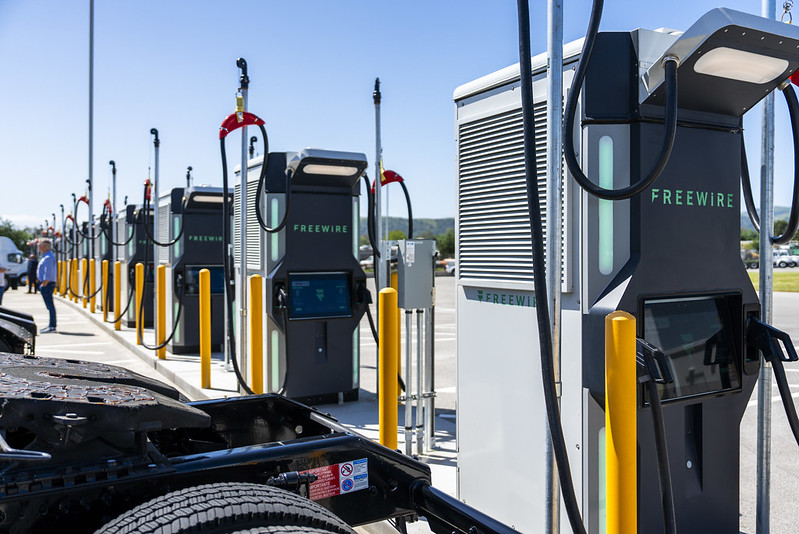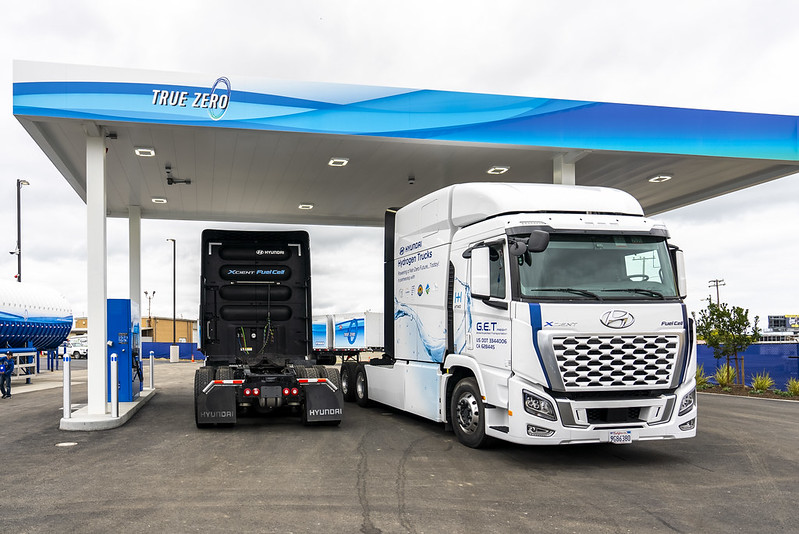Infra
Zero-Emission Vehicle Infrastructure Dollars Are at Work Across California

For Immediate Release: May 8, 2024
Charging and refueling stations for zero-emission cars, trucks and buses are rapidly coming online throughout California.
SACRAMENTO — Ahead of National Infrastructure Week, the California Energy Commission (CEC) is highlighting work happening across the state to build a bigger, better network of charging and refueling infrastructure for zero-emission cars, trucks and buses.
As California nears two million zero-emission vehicles (ZEVs) sold, billions are being invested to meet projected infrastructure needs. Last year, Governor Gavin Newsom also signed a bill extending the CEC’s Clean Transportation Program, providing a dedicated source of funding for zero-emission charging and refueling through 2035.
At its April Business Meeting, the CEC approved $771 million to support implementation of the Clean Transportation Program. The bulk of the dollars will go to support incentives for zero-emission truck and bus charging and refueling projects.
California is also expected to receive more than $380 million from President Biden’s Infrastructure Investment and Jobs Act. The funding will help create 6,600 miles of electric vehicle (EV) corridors, with at least four fast chargers every 50 miles.
“The fueling network of the future has arrived in California with many transportation companies unveiling new zero-emission truck and bus depots and thousands of EV chargers coming online this year,” said Commissioner Patty Monahan. “It’s thrilling to see the impact and excitement the state’s investments are bringing to communities statewide.”
Projects are coming online across the state. Examples include:
Visit Building California’s Future to explore more.
To improve the charging experience, the CEC recently proposed first ever state-level regulations for EV charger reliability and reporting. Under CEC’s proposal, a performance-based standard would apply to all new publicly funded EV chargers. In addition, the proposed regulations would require sharing of charging station operational data to help drivers make more informed choices about when and where to charge their EVs.
Related Links
###
About the California Energy Commission
The California Energy Commission is the state’s primary energy policy and planning agency. It has seven core responsibilities: advancing state energy policy, encouraging energy efficiency, certifying thermal power plants, investing in energy innovation, developing renewable energy, transforming transportation, and preparing for energy emergencies.








:max_bytes(150000):strip_icc()/roundup-writereditor-loved-deals-tout-f5de51f85de145b2b1eb99cdb7b6cb84.jpg)


